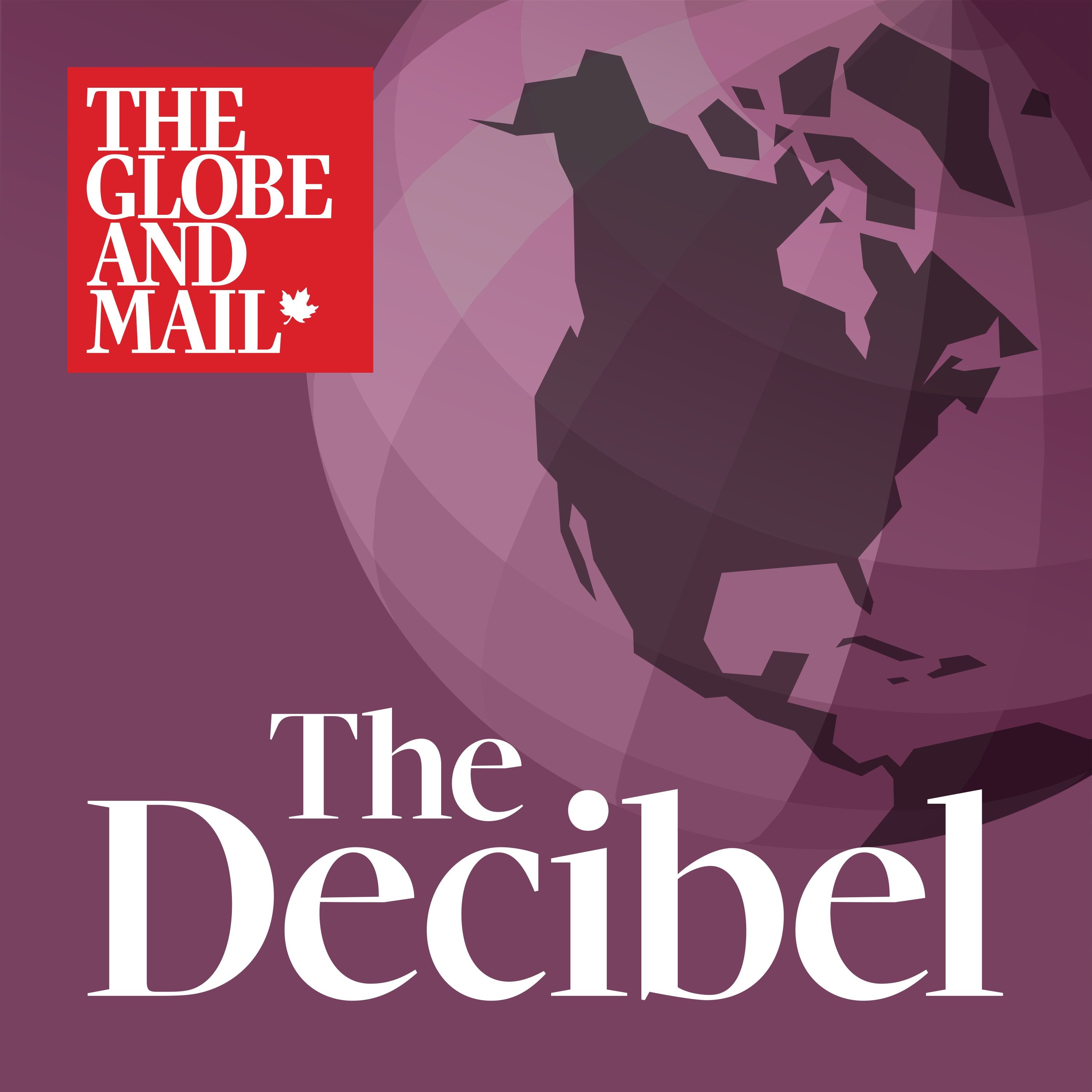

The Decibel
The Globe and Mail
Context is everything. Join us Monday to Friday for a Canadian daily news podcast from The Globe and Mail. Explore a story shaping our world, in conversation with reporters, experts, and the people at the centre of the news.
Episodes
Mentioned books

Jan 24, 2026 • 27min
Happy Enough: Can psychedelics improve your mental health?
Monnica Williams, clinical psychologist and Canada Research Chair in Mental Health Disparities, explores psychedelics and mental health. She explains different substances and Indigenous roots. She discusses how psychedelics may change the brain, therapeutic uses versus daily meds, access and legal questions, and the risks of unregulated retreats.

28 snips
Jan 23, 2026 • 24min
How the world changed this week at Davos
Doug Saunders, an international affairs columnist at The Globe and Mail, delves into the dramatic events at Davos. He discusses the competing visions for global order presented by U.S. President Trump and Canadian Prime Minister Mark Carney, especially focusing on the ambiguous Greenland deal and its implications for NATO's unity. Saunders examines the concept of 'middle powers' and Canada’s quest for autonomy amid U.S. influence. He highlights the potential turning point in international relations, with middle powers needing to collaborate more closely than ever.

8 snips
Jan 22, 2026 • 28min
What Carney’s China trade deal means for EVs in Canada
Dimitry Anastakis, a Professor at the University of Toronto specializing in the Canadian auto industry, discusses the implications of Canada’s new trade deal with China. He explains the introduction of 49,000 Chinese-made electric vehicles into the market, contrasting it with previous tariffs. Dimitry highlights the potential impact on jobs, the shift in buyer preferences, and the challenges for local automakers. He also warns that this deal could complicate USMCA negotiations, while expressing optimism about Canada’s ability to adapt to these changes.

30 snips
Jan 21, 2026 • 23min
Military models invasion of Canada as Trump threatens Greenland
Robert Fife, Ottawa Bureau Chief at The Globe and Mail, dives into Canada’s military strategies in response to U.S. threats towards Greenland. He discusses the hypothetical modelling of a U.S. invasion and Canada's potential military responses, including border troops and Arctic deployments. Fife highlights the political implications of sending troops to Greenland, the risks of possible U.S. retaliation, and emphasizes the country's values that drive resistance against occupation. He also applauds Mark Carney’s call for middle powers to enhance their defenses and alliances.

23 snips
Jan 20, 2026 • 22min
What Legault’s resignation means for Quebec
Konrad Yakabuski, a Globe and Mail columnist with deep insights into Quebec politics, dissects François Legault's surprise resignation amid sinking poll numbers. He explores the ramifications of party dynamics as the Parti Québécois gains momentum and potential sovereignty discussions loom. Yakabuski highlights Legault's legacy, the impact of identity politics, and the evolving political landscape ahead of the fall election, with a particular focus on the fragility of the CAQ and its future without its founder.

Jan 19, 2026 • 27min
Why the flu is so bad this year
Alanna Smith, a health reporter for The Globe and Mail, discusses the intense flu season hitting Canada. She highlights the aggressive H3N2 variant and its impact on healthcare, including overwhelming ERs in Alberta. Alanna explains discrepancies in vaccination rates and concerns over low uptake. She also shares real stories from patients facing long waits and discusses how this season's flu compares to COVID. Practical tips for prevention and the importance of vaccination, even this late in the season, are underscored throughout the conversation.

11 snips
Jan 17, 2026 • 27min
Happy Enough: Why awe makes us happier
Dacher Keltner, a professor of psychology and director at the Greater Good Science Center, explores the transformative power of awe. He defines awe as an emotion that makes us feel both small and happier, sharing insights from personal experiences that fueled his passion for the subject. Keltner discusses the AWWALK study, showing that noticing everyday wonders reduces pain and anxiety. He also reveals how awe impacts our physiology and health, and offers practical tips to cultivate awe in daily life, encouraging us to embrace the wonders around us.

18 snips
Jan 16, 2026 • 26min
International law in the Trump era
Michael Byers, Canada Research Chair in Global Politics and International Law at the University of British Columbia, dissects how the Trump administration challenges international law. He explains what constitutes international law, why it matters, and its binding nature through treaties. Byers discusses the enforcement of rules against powerful nations, the role of the International Court of Justice, and the International Criminal Court's purpose. He also addresses Canada’s strategic response to U.S. overreach and the future of NATO amidst realignments.

17 snips
Jan 15, 2026 • 25min
What Greenland thinks about Trump’s threats of annexation
Join Paul Waldie, Europe correspondent for The Globe and Mail, as he shares insights from Greenland amidst rising concerns over Trump's annexation threats. He reveals a dramatic mood shift among Greenlanders, moving from joking to genuine fear. Waldie discusses how these tensions spark demonstrations and stir debates about independence from Denmark. He also explores the potential ramifications for NATO and warns Canada about the importance of respecting northern Indigenous populations. Dive into the nuanced realities of geopolitics through Waldie's on-the-ground perspective.

22 snips
Jan 14, 2026 • 26min
Death toll climbs as Iranians protest against regime
In this discussion, Thomas Juneau, a Professor at the University of Ottawa specializing in Middle Eastern politics, delves into the recent surge of protests in Iran. He highlights the profound societal unrest fueled by economic crises and government corruption. Juneau analyzes the implications of the Iranian regime's responses and the lack of unified opposition. He also scrutinizes U.S. involvement and President Trump's strategies, while touching on the geopolitical ramifications for the region, particularly Israel and Russia.


